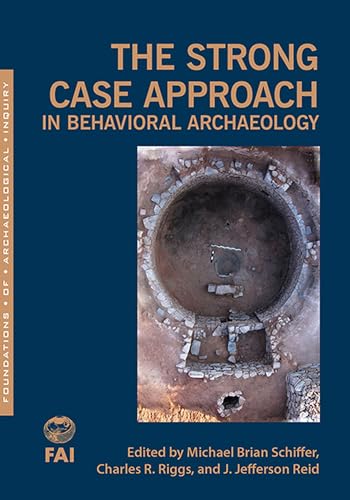Items related to The Strong Case Approach in Behavioral Archaeology...
The Strong Case Approach in Behavioral Archaeology (Foundations of Archaeological Inquiry) - Softcover

"synopsis" may belong to another edition of this title.
--Jakob W. Sedig, Consulting Archaeologist, Reich Lab of Medical and Population Genetics, Harvard Medical School
"These case studies take the ideas of behavioral archaeology and the strong case from the theoretical to the concrete. The volume demonstrates the continued importance of these issues and provides a very accessible medium for their implementation."
--Tammy Stone, professor of anthropology and associate dean, University of Colorado Denver
"About this title" may belong to another edition of this title.
- PublisherThe University of Utah Press
- Publication date2018
- ISBN 10 1607815761
- ISBN 13 9781607815761
- BindingPaperback
- Number of pages288
Buy New
Learn more about this copy
Shipping:
£ 3.14
Within U.S.A.
Top Search Results from the AbeBooks Marketplace
The Strong Case Approach in Behavioral Archaeology Format: Paperback
Book Description Condition: New. Brand New. Seller Inventory # 9781607815761
The Strong Case Approach in Behavioral Archaeology (Paperback)
Book Description Paperback. Condition: new. Paperback. Although all archaeologists subscribe in principle to building strong cases in support of their inferences, behavioural archaeology alone has created methodology for developing strong cases in practice. The behavioural version of the strong case approach rests on two main pillars: (1) nomothetic (generalising) strategies, consisting of research in experimental archaeology, ethnoarchaeology, and long-term processes of behavioural change to produce principles necessary for inference; and (2) the formation processes of supporting evidence when constructing inferences. The chapters employ a wide range of data classes, demonstrating the versatility and productivity of the approach for fashioning rigorous inferences in history, historical archaeology, ethnoarchaeology, and prehistory. By illustrating the strong case approach with convincing case studies from behavioural archaeology, the editors aim to alert the archaeological community about how the process of archaeological inference can be improved. Although all archaeologists subscribe in principle to building strong cases in support of their inferences, behavioural archaeology alone has created methodology for developing strong cases in practice. The behavioural version of the strong case approach rests on two main pillars: (1) nomothetic (generalising) strategies, consisting of research in experimental archaeology, ethnoarchaeology, and long-term processes of behavioural change to produce principles necessary for inference; and (2) the formation processes of supporting evidence when constructing inferences. Shipping may be from our UK warehouse or from our Australian or US warehouses, depending on stock availability. Seller Inventory # 9781607815761

